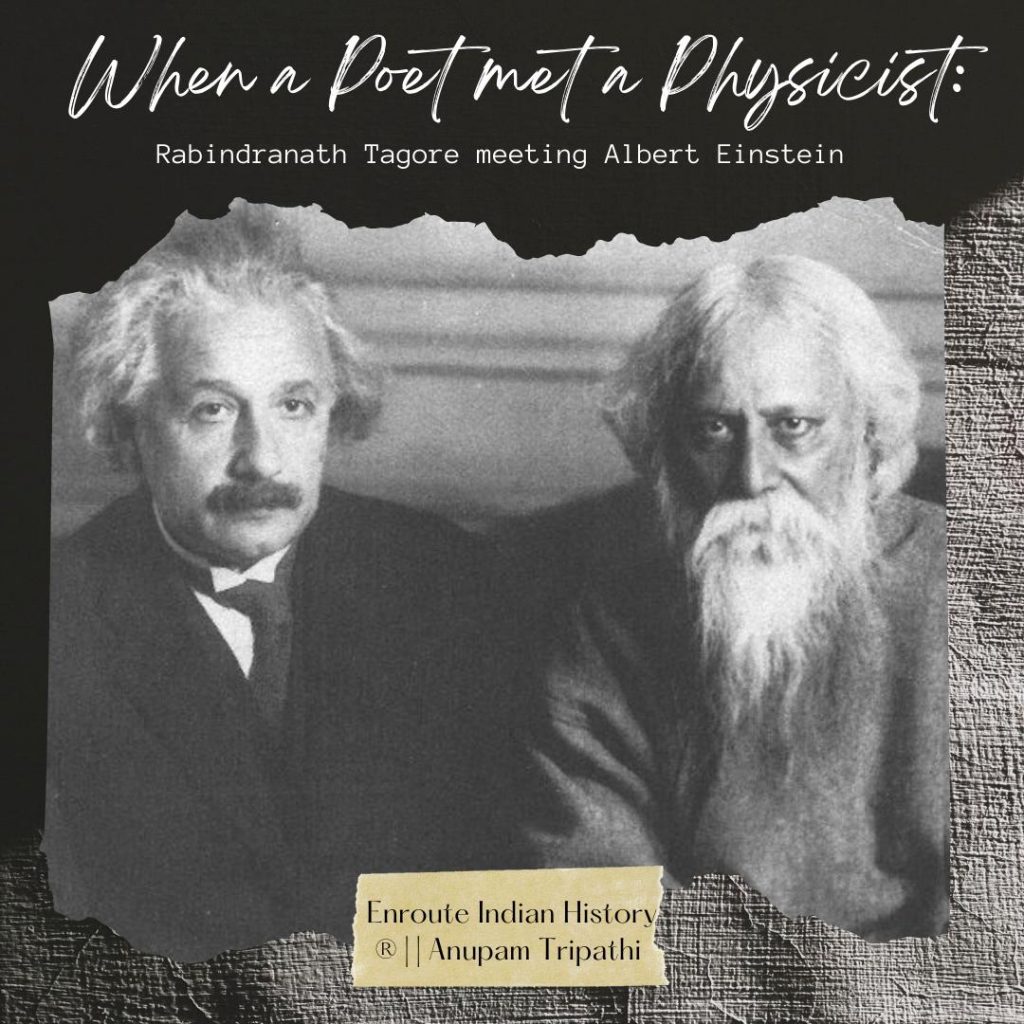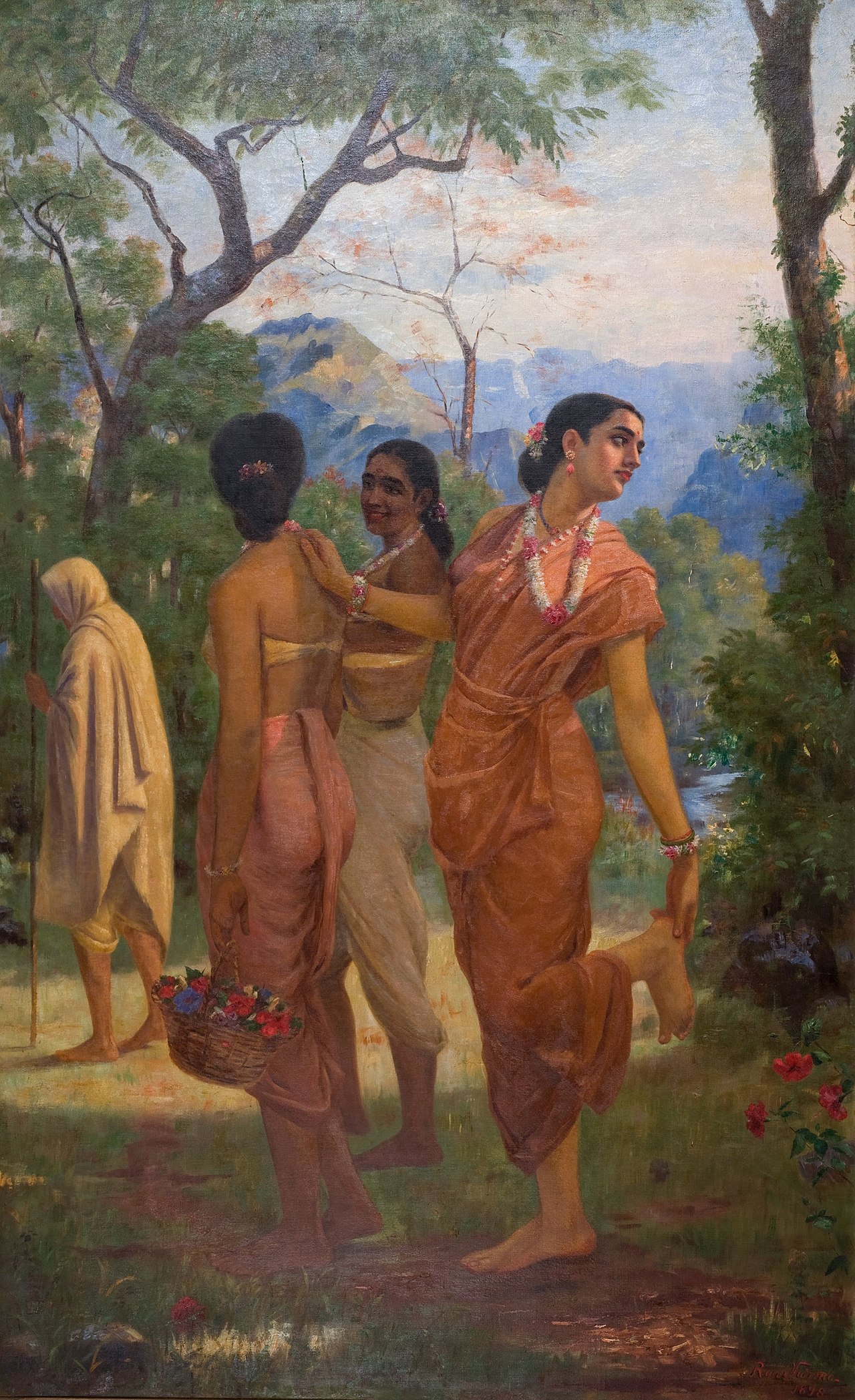
Article by EIH Researcher and Writer
Anupam Tripathi
One of the first questions a history student is asked is, “Is history science or literature?” I won’t dwell on that debate here, but have you ever wondered what would happen if a scientist and a literary scholar debated art, science, and history? What if it was Albert Einstein and Rabindranath Tagore, two of the most famous personalities of 20th century? Let’s see what really happened when these two giants met and discussed science, philosophy and religion.
On July 14, 1930, Albert Einstein welcomed the Indian poet, philosopher and musician Rabindranath Tagore, the first non-European to receive the Nobel Prize, at his home in Caputh, just outside Berlin. It might seem that a poet and a scientist have little in common. Despite all the odds, Einstein and Tagore had a lot in common. The two had one of the most stimulating and intellectually intriguing conversations, exploring the age-old friction between science and religion. They met at least six times; the first was during Tagore’s second visit to Germany in 1926. They had even jointly signed a “Declaration of the Independence of Spirit” against the war. Their conversation in 1926 was not recorded, but the conversations that ensued in 1930, when they met four times, were recorded, the first two of which were published: the first in the New York Times and second in New York based magazine Asia (March 1931). Although both the conversations concerned science, the first, which focused on reality, was considered the most significant and entitled “Einstein and Tagore Plumb the Truth”.
They lived at a time when major social and historical shifts were sweeping across the world. Both of them publicly voiced their dissatisfaction with the rise of aggressive nationalism, and fought for the cause of human rights and freedom in the pursuit of world peace. The conversation between Einstein and Tagore is a brilliant exploration of the fundamental questions of existence, touching on science, philosophy, consciousness and beauty. Their conversation showed that they had a genuine curiosity about each other’s perspectives, how they complement one another and how they differ.
Here’s an excerpt from their conversation published in Science and the Indian Tradition: When Einstein Met Tagore by David L. Gosling:
Tagore: You have been busy, hunting down with mathematics, the two ancient entities, time and space, while I have been lecturing in this country on the eternal world of man, the universe of reality.
EINSTEIN: Do you believe in the divine isolated from the world?
TAGORE: Not isolated. The infinite personality of man comprehends the universe. There cannot be anything that cannot be subsumed by the human personality, and this proves that the truth of the universe is human truth.
EINSTEIN: There are two different conceptions about the nature of the universe — the world as a unity dependent on humanity, and the world as reality independent of the human factor.
TAGORE: When our universe is in harmony with man, the eternal, we know it as truth, we feel it as beauty.
EINSTEIN: This is a purely human conception of the universe. TAGORE: The world is a human world — the scientific view of it is also that of the scientific man. Therefore, the world apart from us does not exist.















